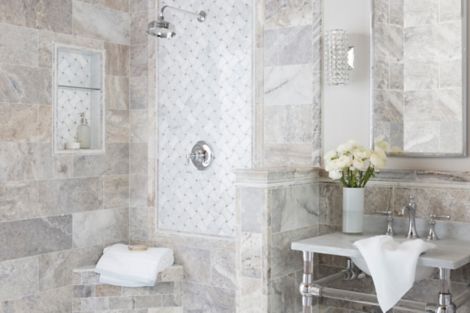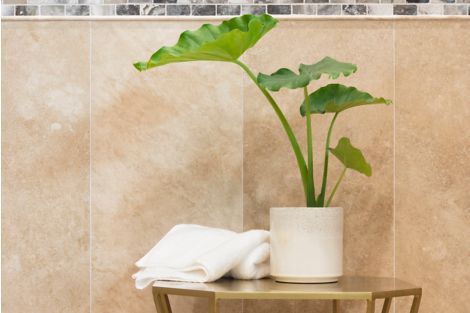What is Travertine Tile?
Last Updated: 08/02/2019
What is travertine tile? Travertine is a type of limestone that is formed by mineral deposits from natural springs. This sedimentary stone is created by a rapid precipitation of calcium carbonate, known as calcite. Other minerals mix together with the calcite to create unique swirls and movement that give travertine its distinctive character.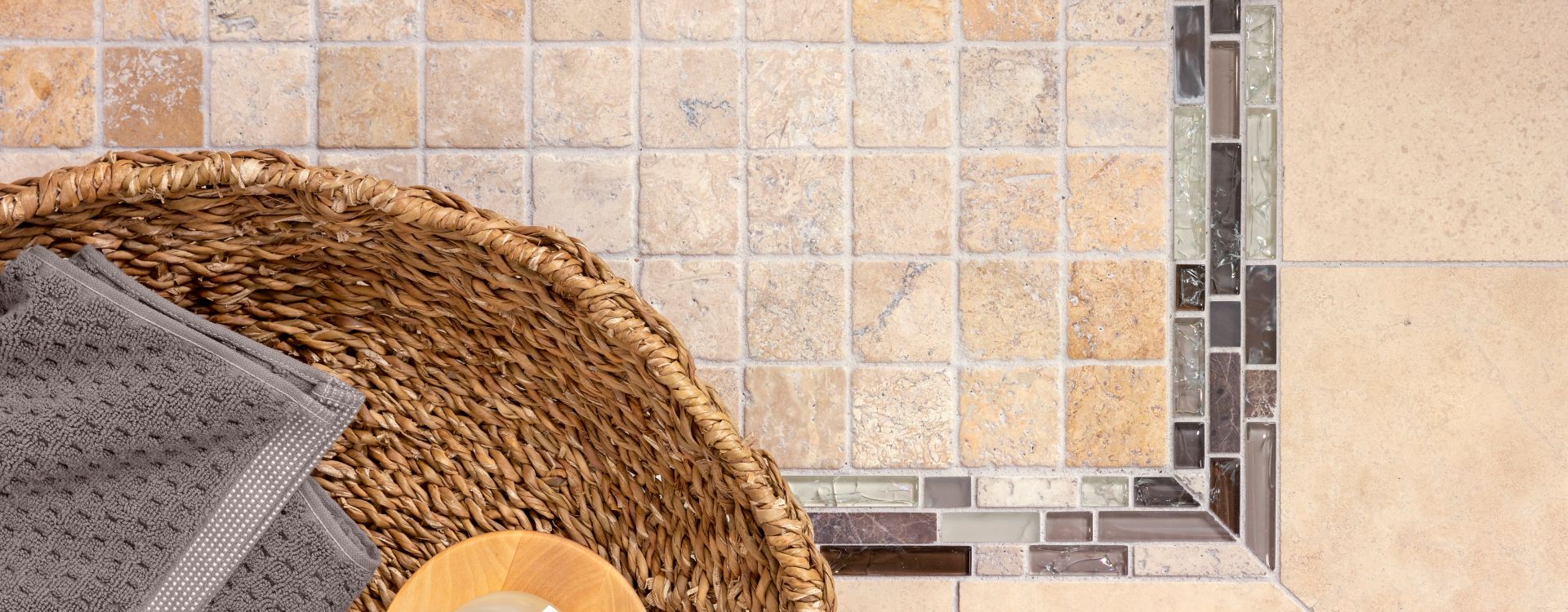
Travertine Finishes
Travertine is a versatile product choice as it has many different finishes to help you achieve the look you are going for.
Polished: Create a look of luxury with the high shine from polished travertine. Polished travertine is smoothed and glossed over to get a shiny reflective surface.
Honed: Honed finishes provide a smooth yet matte finish without any shine. Honed travertine can either be filled or unfilled. A honed look and texture is achieved by grinding and buffing one side of the unfinished stone.
Brushed: Utilize the natural look of travertine with a brushed finish. This textured finish features an unfilled exterior and provides a rustic yet sophisticated look. This look is obtained by brushing the surface of the stone with a brush or wire wheel until the preferred texture is achieved.
Tumbled: To create tumbled travertine, pieces of stone are cut, sized and placed in a rubber coated or plastic barrel with an abrasive grit and water. Sometimes a small amount of acid is mixed in. The tub/barrel is turned over and over again, allowing for the stones to rub against each other. The edges of the travertine are softened and worn down. This feature provides a much more natural, worn look. Like brushed travertine, tumbled travertine has a high-textured finish. The major difference between the two is that tumbled travertine has softened edges.
DIY Installation tip: Tumbled travertine should be sealed before and after grouting.
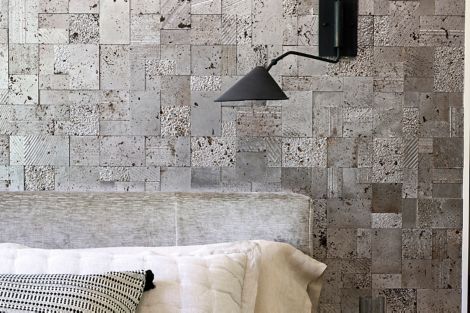
Make your tile design a work of art. Harmony Silverleaf mosaic travertine tile is perfect for highlighting your designer taste. Photo courtesy of Annie Selke.
Colors of Travertine
Travertine offers a stunning variety of natural colors. The colors include variations of beige, brown, taupe and even lustrous silver grey. The stunning variety of color options prove that this stone dominates with versatility in the world of design.
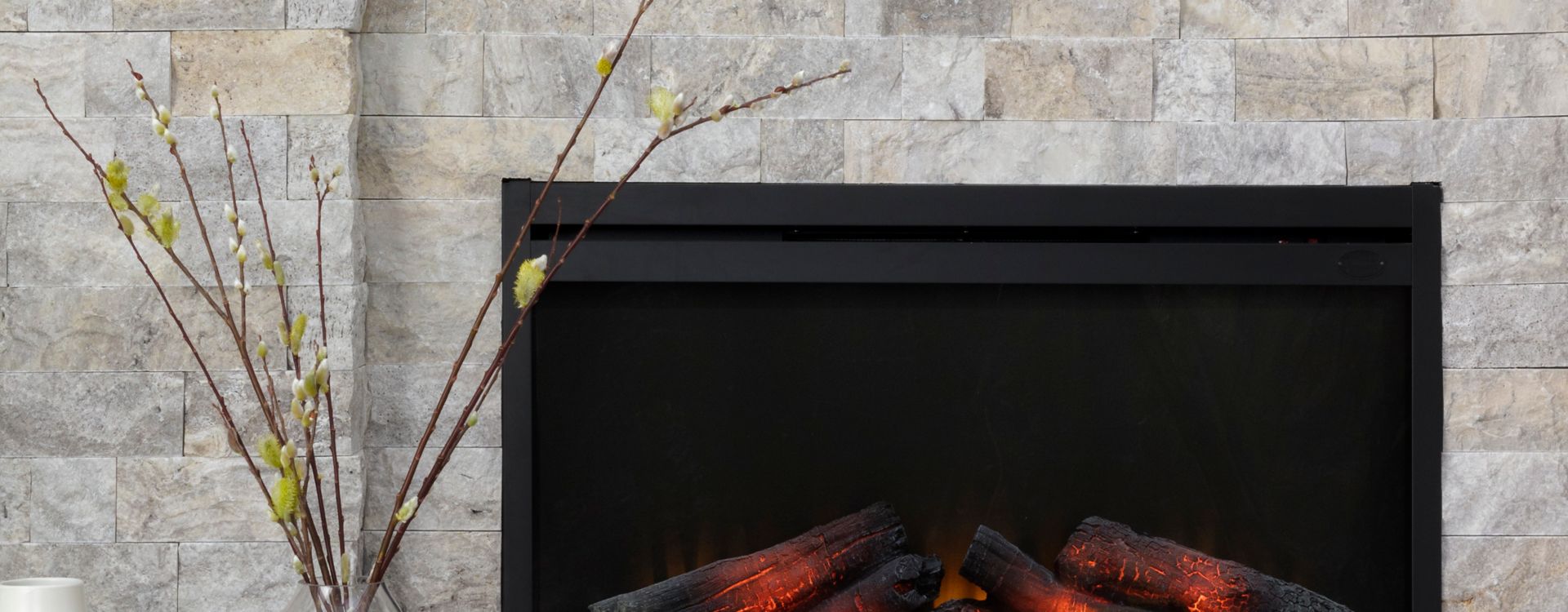
Because travertine is a natural stone, it may have a high variation in coloration and movement. High variation means no two projects will ever be the same, even if the same stone is used. It’s important to lay out your tile in the design you desire before it is installed to ensure you get the look you want.
Cost of Travertine
The price of travertine depends on the type you choose. Travertine can be one of the more reasonably priced stone options. Its reasonable price and rich look make travertine an affordable luxury.
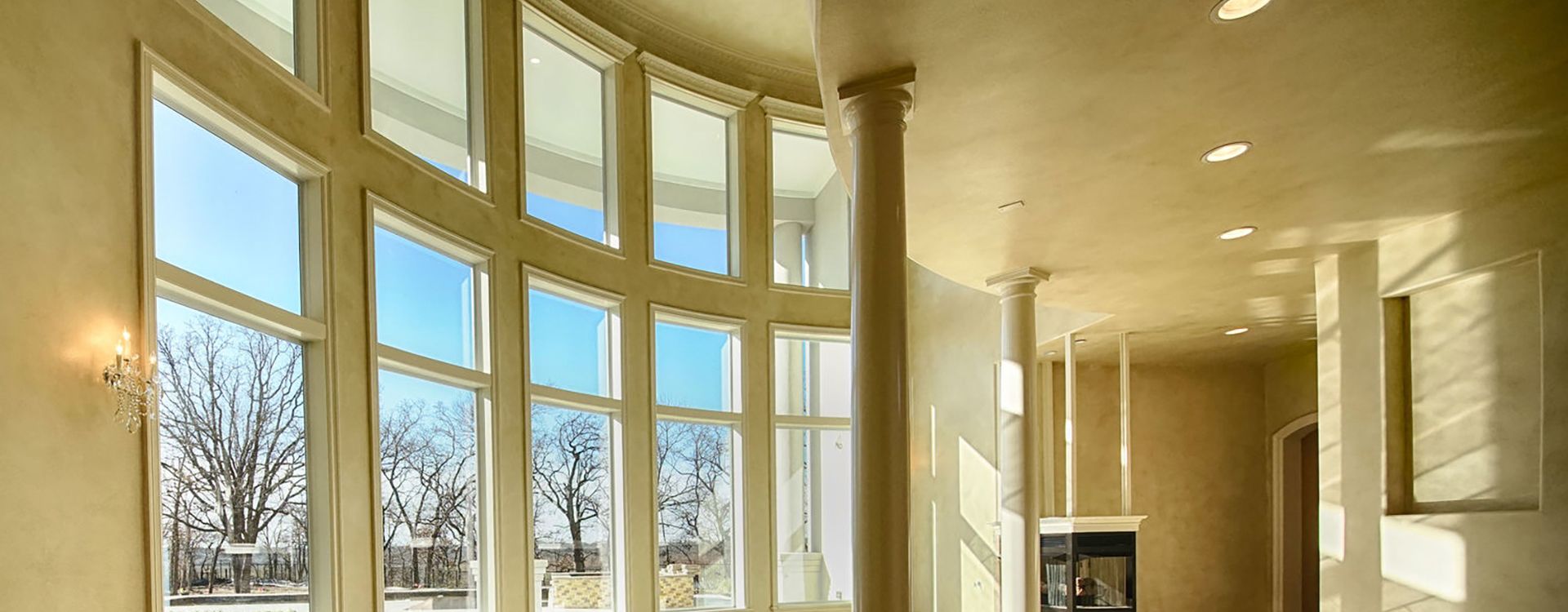
Is it often installed in certain rooms?
Travertine is a common natural stone that is used in bathrooms. Unpolished travertine stone has a naturally nonslip texture. This makes it great for being installed in bathrooms, showers and floors. Travertine is a great stone for being installed around pools if you live in climate that is warm year-round.
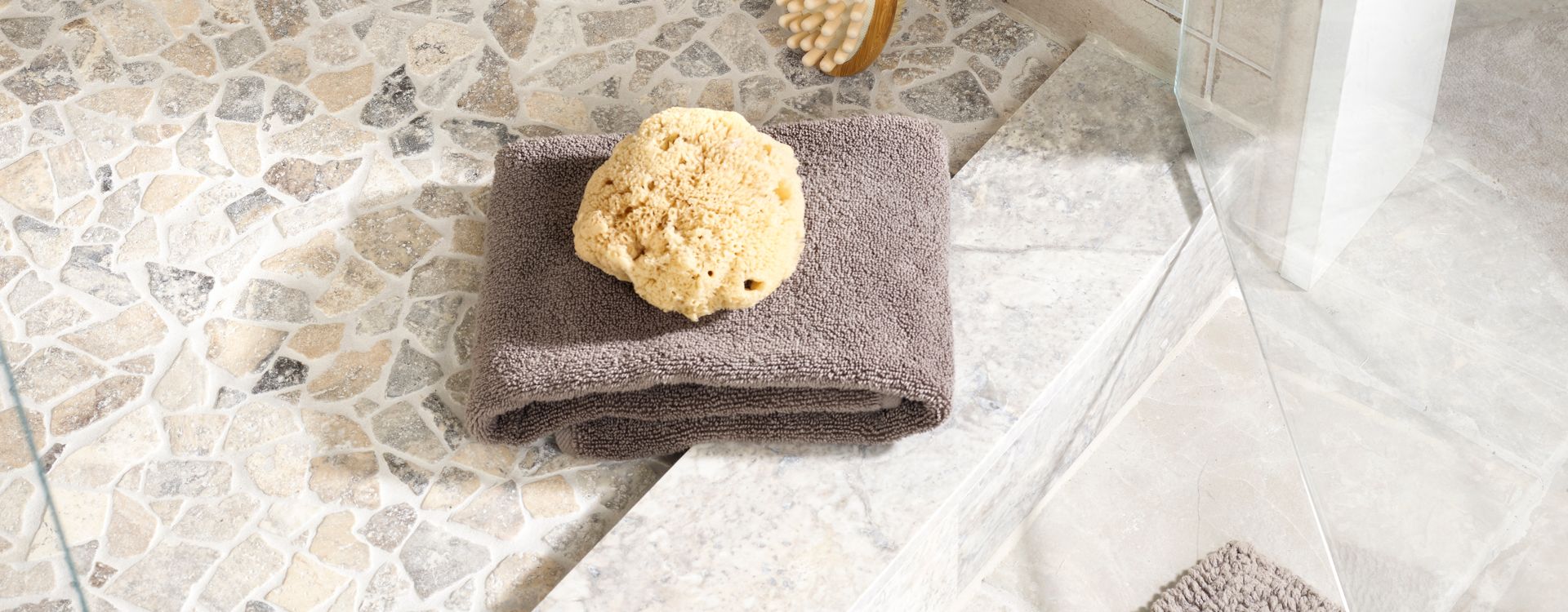
Durability
Travertine is not as soft as marble but not as hard as granite. It can scratch if not protected, so be careful when moving heavy objects on your travertine floors. Be conscious of the finish you choose and what kind of area you’re installing it in. Like other natural stone, travertine can lengthen its timeless beauty with proper installation and maintenance. Proper installation plays a large part in the durability of travertine.
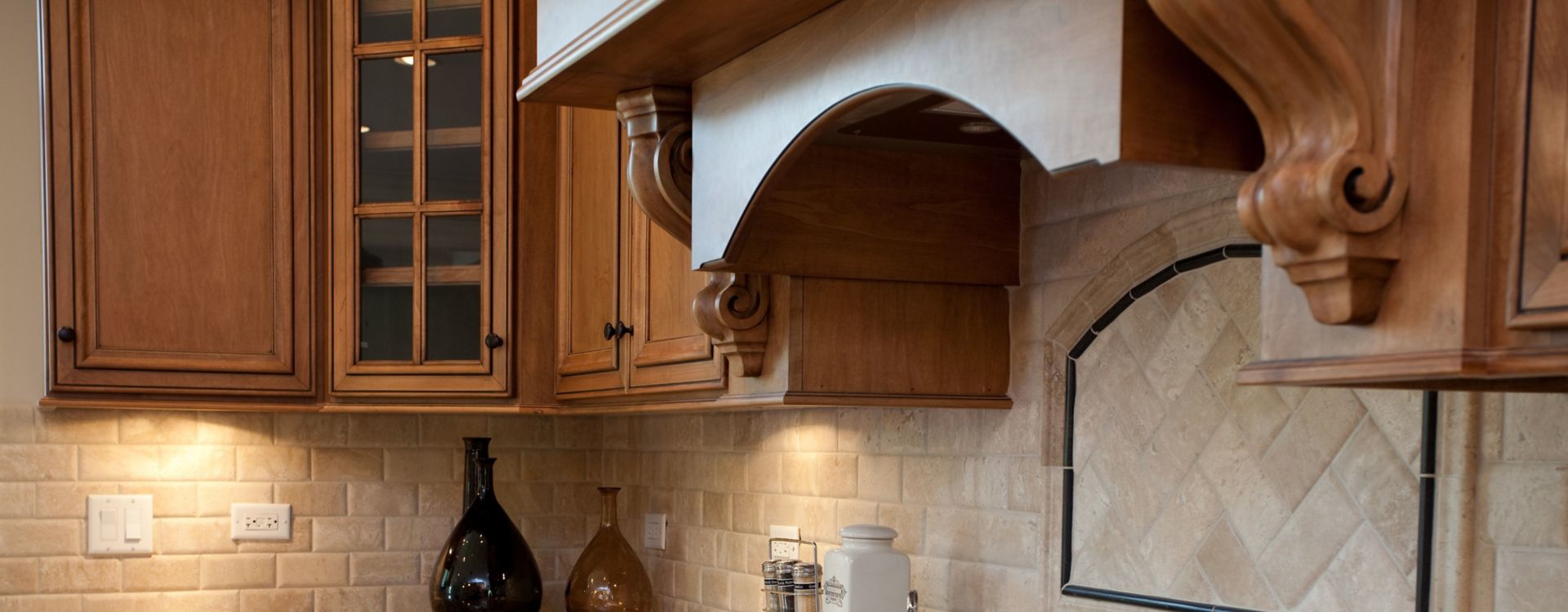
Where is Travertine Sourced?
Travertine can be sourced from all over the world. A majority of our stone is sourced from Peru, Mexico, Turkey and China. Travertine is quarried the same way most natural stones are. It is collected in large blocks and then cut down to the desired shape.
Still Have Questions About Tile?
We host Saturday morning workshops where we can answer any tile-related questions you have or talk with you about your project.



